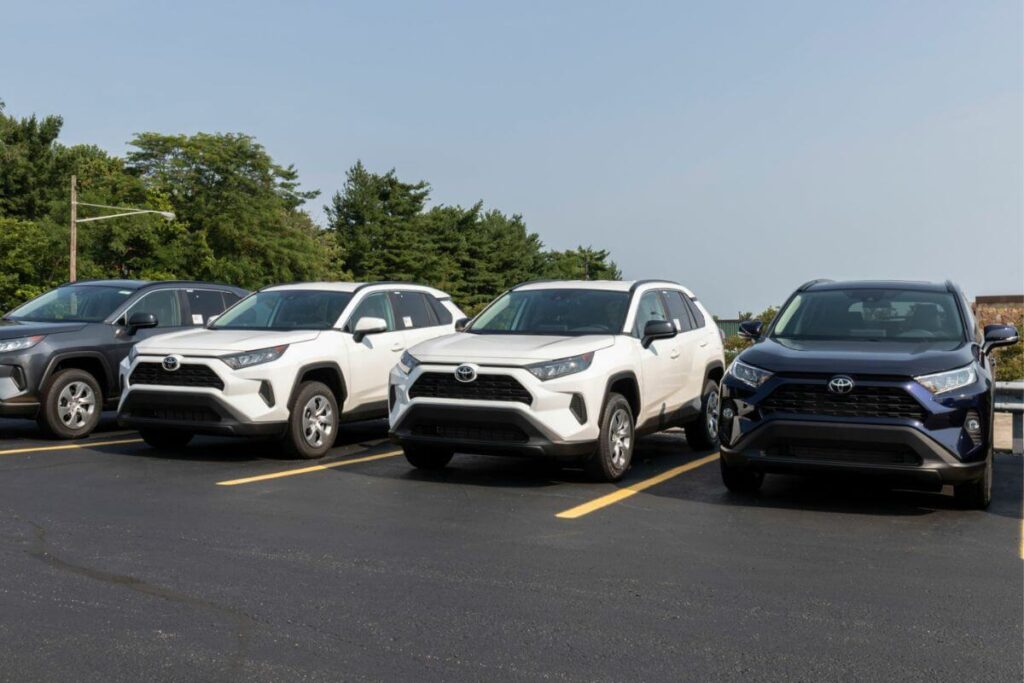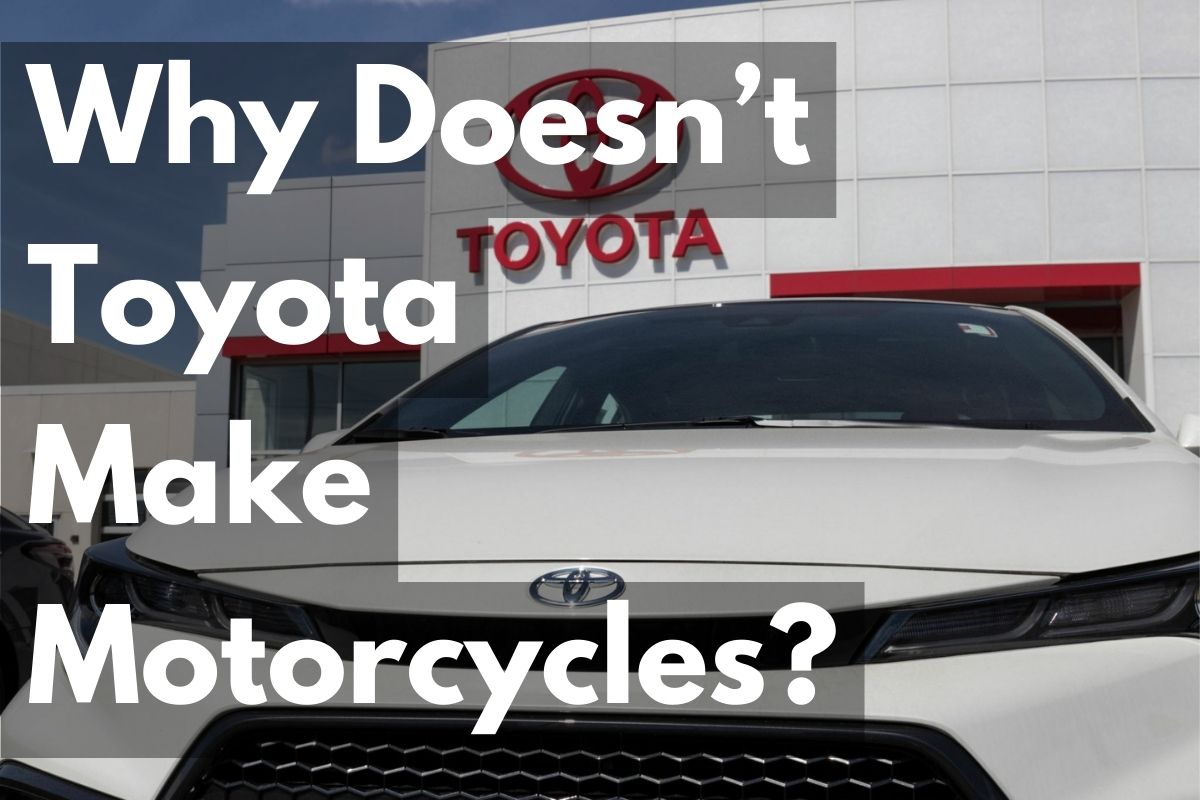Toyota doesn’t make motorcycles because it specializes in automobiles and has strategically chosen not to enter the motorcycle market. The company focuses on leveraging its reputation in car manufacturing and innovation.
With a commitment to quality, safety, and sustainability, Toyota has become a global leader in the automotive industry, renowned for reliable cars like the Corolla, the Camry, and the hybrid Prius. Its brand philosophy emphasizes creating vehicles that resonate with a broad consumer base, from compact cars to trucks and SUVs, ensuring that there’s a Toyota for every type of driver.
While the motorcycle market is robust and filled with dedicated manufacturers, Toyota has opted to devote its resources and expertise to four-wheeled vehicles, strengthening its position in a highly competitive car market, and consistently pushing the envelope in automotive technology and environmental standards. This strategic choice has allowed Toyota to build a strong brand identity without the diversification into motorcycles.
Toyota’s Strategic Choices

When pondering the vast and dynamic world of transportation, Toyota stands out as a behemoth within the automotive industry. Known for its robust selection of cars, trucks, and SUVs, the absence of motorcycles in Toyota’s portfolio often stirs curiosity. This strategic decision hinges upon a series of insightful choices that guide Toyota’s business trajectory. Diving into Toyota’s strategic choices reveals three pivotal factors that steer the brand away from the realm of two-wheeled machines.
Market Analysis And Target Customer Base
Toyota’s business strategies are firmly rooted in comprehensive market analysis. A deep understanding of consumers drives its product lines, focusing on producing vehicles that cater to the needs and preferences of its broad customer base. In-depth research indicates that Toyota’s strengths align more with four-wheeled transport, a sector where the company already has a major presence and influence. By concentrating on the automotive market, the corporation ensures that resources are optimally allocated to areas with the highest return on investment and consumer demand.
Brand Positioning And Differentiation
The ethos of Toyota’s brand revolves around reliability, efficiency, and innovation in the automobile sector. Developing a motorcycle line could potentially dilute the brand’s dominant identity. In an industry where branding is crucial for consumer recognition and loyalty, Toyota’s decision to focus on its core offerings aids in maintaining a clear and distinct market positioning. Their strategic choice not only strengthens brand recognition but also enables Toyota to stand out in a highly competitive environment.
Leveraging Economies Of Scale In Automobile Production
Toyota has successfully harnessed economies of scale with its vast automobile production capabilities. This has been achieved through a refined manufacturing process known as the Toyota Production System, renowned for its efficiency and quality. Transitioning into motorcycle production would require significant alterations in these established processes, potentially disrupting the finely tuned balance of current operations. The substantial investment needed to create a new production line for motorcycles does not match the strategic prioritization of optimizing and expanding the more profitable automobile segments.
Challenges And Risks In Motorcycle Production
Understanding the rationale behind Toyota’s decision to steer clear of motorcycle manufacturing requires an exploration of the challenges and risks associated with motorcycle production. As a global behemoth in the automotive industry, Toyota’s strategic choices often reflect a calculated approach to balancing opportunities against potential pitfalls. Numerous factors contribute to the complexity of entering the motorcycle market, from cutthroat competition to the intricate economics governing production and sales.
Competition In The Motorcycle Industry
The motorcycle landscape brims with specialized manufacturers whose expertise has been honed through decades of intense rivalry and brand loyalty. Companies like Honda, Yamaha, and Harley-Davidson represent just a fraction of the entities vying for market dominance. A new entrant, such as Toyota, would face the formidable task of establishing a foothold amidst these established brands, necessitating significant expenditure on marketing and innovation to even disrupt the status quo.
Lower Profit Margins Compared To Automobiles
Moving to the economic underpinnings, the motorcycle sector often operates on thinner profit margins compared to the automobile industry. The scale of production, the price points, and the consumer base purchasing motorcycles are distinctively different from those of cars. Automobiles yield higher returns on investments, steering companies like Toyota towards markets where profitability is more robust and predictable.
Investment And Production Capacity Requirements
Lastly, entering the motorcycle market is not without substantial investment and production capacity commitments. Enterprises must invest in new technologies, assembly lines, distribution networks, and skilled personnel specific to motorcycle manufacturing. For an automotive giant like Toyota, with already significant investments in car production facilities, diverging resources to establish a new product line might dilute the focus and compromise efficiency.
Frequently Asked Questions On Why Doesn’t Toyota Make Motorcycles
Why Did Toyota Not Make Motorcycles?
Toyota has historically focused on manufacturing cars, prioritizing its position as a leading global automobile producer rather than entering the motorcycle market. They concentrate on innovative car technology and expansive vehicle lineups, maintaining their automotive brand identity.
Did Toyota Ever Make A Motorbike?
No, Toyota has not manufactured motorbikes. The company specializes in cars and produces various other vehicles like trucks and buses.
Why Don’t American Car Companies Make Motorcycles?
American car companies focus on automobile segments where they have competitive strengths and established market share, such as cars, trucks, and SUVs, rather than motorcycles. Market demand and company specialization guide these strategic decisions.
Why Doesn’t Kawasaki Make Cars?
Kawasaki focuses on motorcycles, aerospace, and heavy equipment industries. They’ve strategically chosen not to enter the competitive car market, capitalizing on their established market strengths.
Conclusion
Wrapping up, Toyota’s focus on automobiles is clear. Their absence from the motorcycle market reflects strategic choices. High-quality consumer cars remain their forte. Toyota cultivates this niche, which aligns with its proven expertise. Thanks for joining us to uncover these insights. Keep exploring with us for more intriguing automotive discussions!




